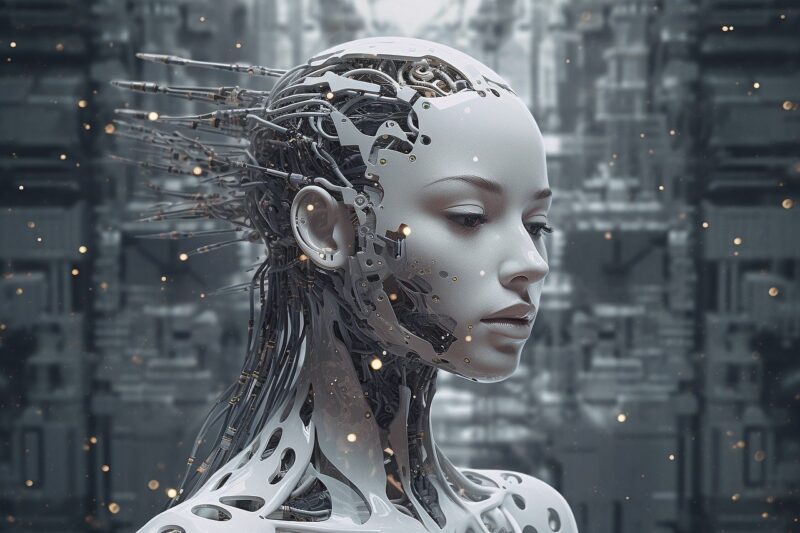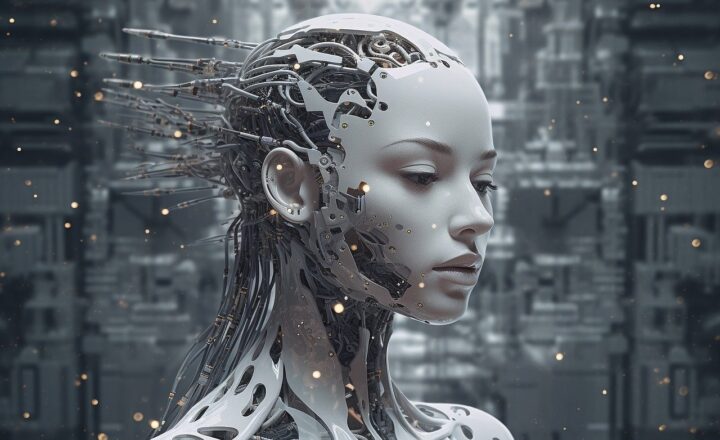
Artificial Intelligence (AI) has rapidly evolved from a concept of science fiction into a tangible part of our everyday experiences. Today, you can’t scroll through social media or browse the web without encountering AI technologies. Whether you’re using a virtual assistant, streaming your favorite shows, or shopping online, AI drives many of the conveniences we enjoy.
1. Understanding Artificial Intelligence
Artificial Intelligence refers to the simulation of human intelligence in machines programmed to think and act like humans. These systems can perform tasks such as problem-solving, reasoning, learning, and adapting. AI can be categorized into two main types:
- Narrow AI: This is designed to perform a narrow task (like facial recognition or internet searches) and is currently the most common form of AI in use today.
- General AI: This is a theoretical form of AI that exhibits human-level intelligence across a variety of tasks, although we have yet to achieve this level of advancement.
The underlying technologies driving AI forward include machine learning, neural networks, and natural language processing. These technologies enable AI systems to learn from data patterns, understand human language, and even interact conversationally.
2. AI in Daily Life: An Overview
Everyday life is being revolutionized by AI technologies across various domains, transforming how we work, communicate, and play. Here’s a closer look at some of the most impactful areas where AI is making a difference:
A. Personal Assistants
AI personal assistants like Apple’s Siri, Google Assistant, and Amazon’s Alexa have redefined convenience. From setting alarms to preparing shopping lists, these assistants manage daily tasks, allowing users to navigate their lives more efficiently.
B. Smart Home Devices
Smart home devices, such as thermostats, security systems, and smart speakers, enhance comfort and security in homes. These devices can learn preferences and habits, making automatic adjustments that improve energy efficiency and enhance safety.
C. Content and Recommendations
Platforms like Netflix and Spotify utilize AI to analyze user data and suggest shows, movies, or music based on preferences. This personalization makes entertainment more engaging and tailored to individual tastes.
D. Online Shopping and E-commerce
AI plays a significant role in e-commerce by offering personalized shopping experiences. Chatbots and recommendation engines assist customers in finding products, making shopping more accessible, engaging, and efficient.
3. AI in Healthcare: A Transformative Force
The healthcare industry is experiencing a significant transformation due to AI technologies. AI-driven systems are being used to improve diagnostics, tailor treatment plans, and predict patient outcomes. Notable applications include:
- Predictive Analytics: AI analyzes patient data to forecast health risks and recommend preventive measures, enabling proactive healthcare solutions.
- Radiology Assistance: AI algorithms assist radiologists in identifying abnormalities in X-rays or MRIs with greater accuracy and speed.
- Personalized Medicine: By analyzing genetic data, AI can help healthcare providers create personalized treatment plans that cater to individual needs.
As AI continues to evolve, its impact on healthcare will only intensify, driving innovations that improve patient care and outcomes.
4. Ethical Considerations and Challenges
Despite its benefits, AI also presents ethical considerations and challenges that need addressing. Key concerns include:
A. Privacy and Security
The collection of vast amounts of user data to fuel AI development raises serious privacy concerns. Companies need to ensure robust data protection measures to avoid breaches and misuse of personal data.
B. Employment Impacts
AI’s automation abilities could lead to job displacement in certain sectors. Adapting workforce skills and providing retraining opportunities will be essential to mitigate negative impacts on employment.
C. Algorithmic Bias
As AI systems are trained on historical data, they can inadvertently learn and perpetuate biases, leading to unfair treatment in areas like hiring or lending. Ongoing efforts to ensure fairness and accountability in AI systems are critical.
5. The Future of AI: What Lies Ahead?
Looking forward, the possibilities for AI seem limitless. Experts predict advancements can lead to enhanced personalization, improved efficiency, and novel applications across sectors. Potential developments include:
- Enhanced Human-Machine Collaboration: AI will increasingly complement human efforts in decision-making and problem-solving, enabling more productive collaborations.
- Advancements in Autonomous Vehicles: AI is at the heart of developing self-driving technologies, promising safer road experiences and enhanced transportation efficiencies.
- AI in Education: Customized learning experiences powered by AI should continue to grow, offering personalized curricula based on individual student needs and learning speeds.
The continuous integration of AI into everyday life will redefine our existence, making mundane tasks easier while unlocking unprecedented capabilities.
Conclusion
In conclusion, AI is undoubtedly a game changer in our daily lives, affecting how we interact with technology and each other. As we embrace these advancements, it is crucial to remain conscious of associated ethics and ensure that AI development serves humanity positively. By promoting a responsible approach to AI, we can harness its full potential while minimizing adverse effects, paving the way for a future that benefits everyone.
Staying informed about AI’s evolution and its implications keeps us better equipped to navigate this exciting frontier. The time is now to embrace the change and become part of this transformative journey into a new era driven by Artificial Intelligence.







